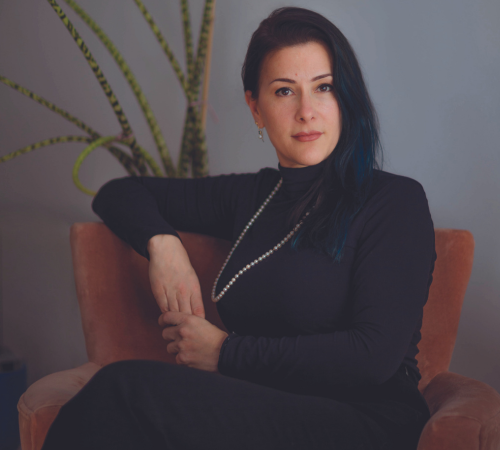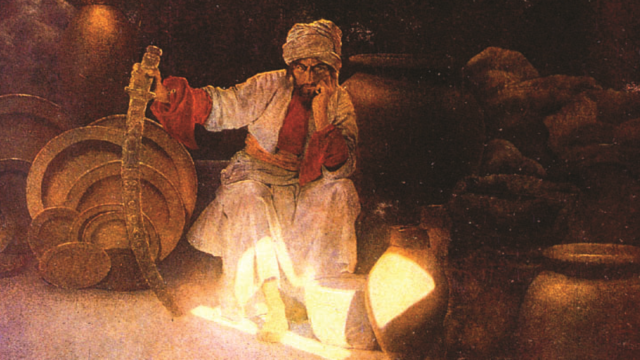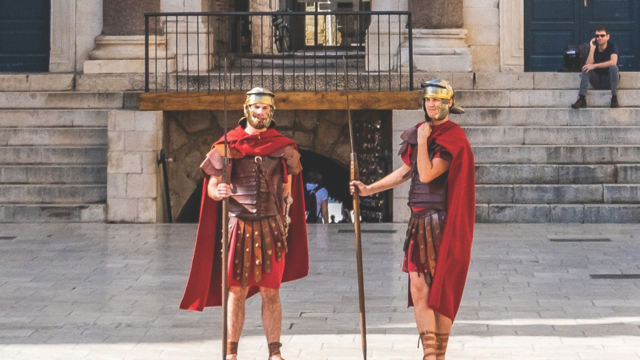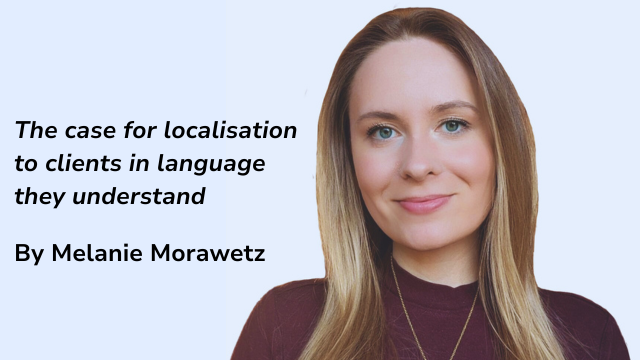-
QUALIFICATIONS
- For Linguists Worldwide
- For UK Public Services
- Preparation
- Policies & Regulation
-
MEMBERSHIP
- Join CIOL
- Professional Membership
- Affiliate Membership
- Chartered Linguist
- Already a member?
- Professional conduct
- Business & Corporate Partners
-
LANGUAGE ASSESSMENTS
- English
- All Other Languages
-
EVENTS & CPD
- Webinars & Events
- CIOL Conferences
- Networks
- CIOL Mentoring
-
NEWS & VOICES
- News & Voices
- CIOL eNews
- CIOL Awards
- The Linguist Magazine
- Jobs & Ads
-
RESOURCES
- For Translators & Interpreters
- For Universities & Students
- Standards & Norms
- CIOL & AI
- All Party Parliamentary Group
- In the UK
- UK Public Services
- Find-a-Linguist
Kate Trotman meets Rachel Strassberger

How languages helped the music promoter make it to the top in a male-dominated industry
Music promoter Rachel Strassberger, who counts Black Eyed Peas among her biggest clients, has combined a career in law and marketing with a passion for electronic music. She explains how speaking five languages shapes who she is, how she builds relationships and how she gets ahead in negotiations.
You’re fluent in five languages. How did you learn them?
I’m really fluent in three: I grew up speaking French and Italian at home with my French Swiss and Italian Swiss parents. They were in the hotel business in South Africa and then North Africa, and I was in English-speaking international schools. Three languages was completely normal for me. A much bigger challenge came when I was 13. We moved back to Switzerland and school suddenly changed from English to French. That was a tough one as I couldn’t read and write French.
I also needed to learn German. Beach holidays with my grandma suddenly switched to four weeks of intensive tuition in Cologne or Bonn. When a language is so improvised through childhood, having to learn it academically is very different. Mum was very strict with me about what it means to really know a language; you have to read, write and speak – the whole package.
As a teenager, we spent time in Cyprus and I was put in Arabic class. I don’t count Arabic professionally, but having lived in Egypt and Libya, you start to appreciate all the different tones and ways of speaking it. I always do the Middle Eastern gigs because I love those. I have a feel for what’s going on around me. Now I live in Barcelona. I didn’t speak Spanish when I arrived five years ago, but I’ve made a lot of progress.
How did languages give you an edge in the music industry?
Being comfortable in several languages gives me insights into the subtle nuances between cultures. I can build a rapport with people pretty quickly and jump on the opportunities for negotiation that this opens up. In everyday life, humanity and emotion are naturally exchanged. I can let the other person drive the conversation, making the most of the warmth that develops. Language fluency is so precious because then nothing gets ‘lost in translation’. If you talk to people in their language at a high enough level to negotiate, you know how far to push things. Without that I wouldn’t have accomplished the things that I have.
Black Eyed Peas are dedicated to connecting with fans. How do you reach their audience before a song is released or the band goes on tour?

We geo-target all our content. Everything is translated for fans in very specific regions so it connects with them personally. It’s a detailed process but so vital to our success. You must always communicate in the other person’s language and it must be absolutely right for them. We make sure that fans in different countries get all the content they want. It sounds so simple but nobody does it because it’s time consuming. There are two aspects of our communication success: translate everything perfectly for everyone, wherever their location; and encourage band members to speak up and build a rapport with fans.
Can you tell us more about how new content is translated?
It’s always the same strategy. We have the same exacting standard for everything and nothing is merely ‘basic information’. I love the process of improving, making sure a word is exactly right in that language.
I’ll translate into French, for example, but I’ll still have a copywriter work on it and polish it. I’m very comfortable in French but you are never really perfect. I’ll give the brief and the emotional tone that I’m aiming for, such as ‘I need this to come across as friendly’, but I want a native monolingual speaker to proofread it. I know exactly where I want to go with the message and I don’t want to confuse translation with copywriting.
Finally it’s given the final touches by a native speaker totally outside our circle so we can be sure it’s not influenced by the English original. It’s got to be perfect for each group of fans and those in the industry. It takes time, but the human touch is what makes it work. If it’s a language I don’t speak I would have a different approach, but for the languages I seek to master, I know the message so well that I always need to be in control.
Do you think the multicultural backgrounds of band members, and the fusion of styles, have contributed to Black Eyed Peas’ international fan base?
Their cultural diversity and personal touch definitely impact where the band is positioned. It’s actually a two-way process: band members have their own connections with fans but I’m there, behind the scenes, to coach and encourage them to build on the opportunities. With his Filipino roots, Apl.de.ap naturally draws in and inspires fans from the Philippines and beyond, including the UK. Everywhere we travel we receive food, because fans bring their love of food and culture to the party – a whole extra dimension.
Taboo, a native American who particularly connects with fans in Mexico or Latin America or even Spain, is always our front man in promotions with Spanish speakers. It can be a bit nerve-wracking as he’s conscious of occasionally making mistakes and wonders if that will be a problem in front of other people. It never is; you have to go with those things when you’re speaking someone else’s language. That’s how I developed my Spanish and now I’m there to coach him. On this level, it doesn’t have to be perfect; just go for it and grow through it.
You’re surrounded by huge personalities – what communication skills work best?
Passion for the industry and experience are my biggest assets. We’re all human and everyone responds to being included and respected for who they are. We do it all the time, through language and cultural finesse. Anything less is not proper communication. These are the things that make us human; it’s the only way to be ourselves and create that real bond.
I always speak the language of the other person. Whether it’s a meeting or chatting with a group, I’ll constantly switch from one language to another, depending on who needs to feel that they are at the heart of the conversation. It doesn’t matter whether it’s a performer, an agent, a PA or whoever, if you can speak their language then you should always show that respect and do so.
What interpreting needs do the bands you manage have?
Usually it’s me doing all the communicating and as long as we’re in places where my languages are spoken I don’t need interpreters. We’re just back from Japan and interpreting was essential there. Although I speak some Arabic, I would still use an interpreter because I don’t want anything to get missed. Connections and negotiations are too important to risk that.
How do you see your role developing over the next few years?
At 17, I had my future mapped out, but experience has taught me that it’s best to enjoy life as it happens and grab opportunities as they come. For sure, I’ll be following my passions and building bonds with people everywhere. The sky’s the limit when you love languages!
Kate Trotman MCIL is Chair of The Linguist Editorial Board.
This article is reproduced from the Summer 2024 issue of The Linguist. Download the full edition here.
Filter by category
More
The Chartered Institute of Linguists (CIOL), Incorporated by Royal Charter, Registered in England and Wales Number RC 000808 and the IoL Educational Trust (IoLET), trading as CIOL Qualifications, Company limited by Guarantee, Registered in England and Wales Number 04297497 and Registered Charity Number 1090263. CIOL is a not-for-profit organisation.








